
Mole National Park: Ghana's Pristine Wildlife Haven
Mole National Park in Ghana is a vast, unspoiled wilderness that offers tourists a chance to experience African wildlife up close. Spanning over 4,840 square kilometers, the park is home to a rich variety of animals including elephants, antelopes, warthogs, and over 300 bird species. The park’s diverse landscapes range from savannas to forests, providing an ideal habitat for wildlife. Visitors can enjoy guided safari tours, either by vehicle or on foot, which allow for unforgettable wildlife viewing experiences. The park’s waterholes are popular spots for observing elephants and other animals as they come to drink. The knowledgeable guides offer deep insights into the behaviors and habitats of the park's inhabitants, enhancing the overall experience. Accommodation options within the park include the Mole Motel and Zaina Lodge, which offer comfortable stays with stunning views of the park. For those interested in cultural experiences, nearby villages provide an opportunity to learn about the local culture and traditions. Mole National Park is not only a haven for wildlife enthusiasts but also a destination that offers relaxation and cultural immersion.
Local tips in Mole National Park
- Best time to visit is during the dry season from December to April when animals gather around waterholes.
- Wear light, breathable clothing and bring insect repellent to protect against mosquitoes.
- Book guided tours in advance to secure a spot, especially during peak travel seasons.
- Carry binoculars for better wildlife viewing, particularly for bird watching.
- Respect wildlife and maintain a safe distance from animals at all times.
Mole National Park: Ghana's Pristine Wildlife Haven
Mole National Park in Ghana is a vast, unspoiled wilderness that offers tourists a chance to experience African wildlife up close. Spanning over 4,840 square kilometers, the park is home to a rich variety of animals including elephants, antelopes, warthogs, and over 300 bird species. The park’s diverse landscapes range from savannas to forests, providing an ideal habitat for wildlife. Visitors can enjoy guided safari tours, either by vehicle or on foot, which allow for unforgettable wildlife viewing experiences. The park’s waterholes are popular spots for observing elephants and other animals as they come to drink. The knowledgeable guides offer deep insights into the behaviors and habitats of the park's inhabitants, enhancing the overall experience. Accommodation options within the park include the Mole Motel and Zaina Lodge, which offer comfortable stays with stunning views of the park. For those interested in cultural experiences, nearby villages provide an opportunity to learn about the local culture and traditions. Mole National Park is not only a haven for wildlife enthusiasts but also a destination that offers relaxation and cultural immersion.
When is the best time to go to Mole National Park?
Iconic landmarks you can’t miss
Kwame Nkrumah Memorial Park & Mausoleum
Explore the rich history and heritage of Ghana at the Kwame Nkrumah Memorial Park & Mausoleum, a serene tribute to the nation's first president.

Kakum National Park
Explore the lush landscapes and breathtaking canopy walks of Kakum National Park, a premier eco-tourism destination in Ghana.
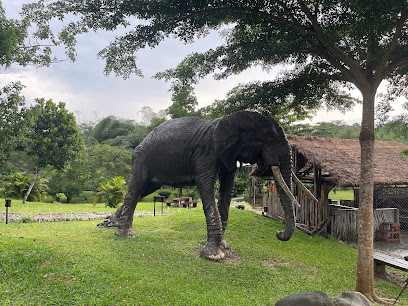
Fort James
Explore the rich history and stunning views at Fort James, a key fortress in Accra's coastal heritage.
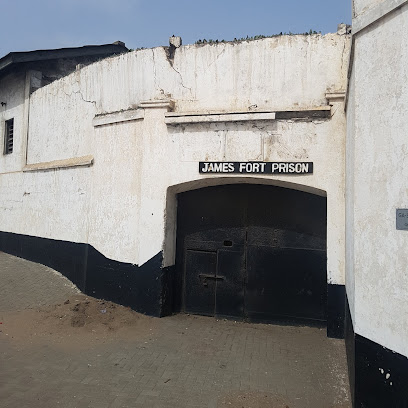
Mole Motel
Experience the tranquility of Mole Motel and the captivating wildlife of Mole National Park, a hidden gem in Northern Ghana.
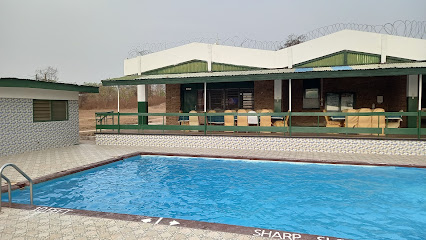
Osu Castle
Explore the rich history of Osu Castle, a captivating museum in Accra that reveals Ghana's colonial past and offers stunning coastal views.
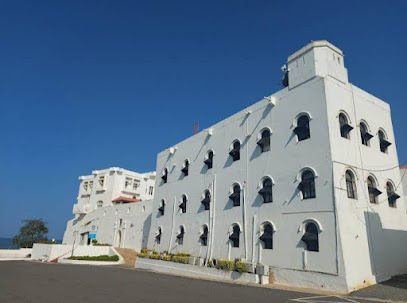
Bui National Park | TortoisePath.com
Explore the breathtaking landscapes and diverse wildlife of Bui National Park, an unspoiled gem in Ghana's natural heritage.
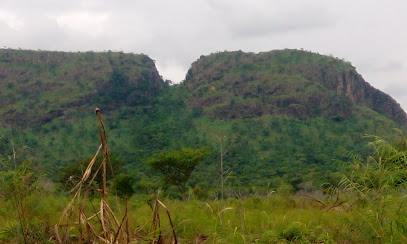
Zaina Lodge
Discover the beauty of Mole National Park at Zaina Lodge, where nature meets luxury in a breathtaking African setting.

Boabeng Fiema Monkey Sanctuary
Discover the enchanting Boabeng Fiema Monkey Sanctuary in Ghana, where vibrant wildlife and conservation efforts create unforgettable experiences.
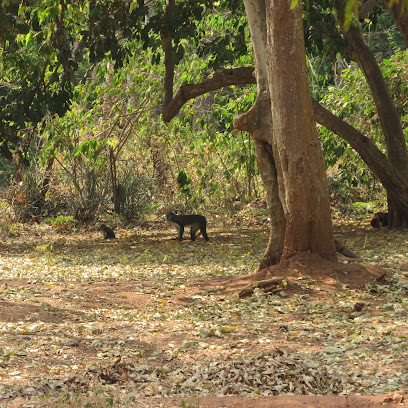
Fort Metal Cross | TortoisePath.com
Discover the historical significance and breathtaking views at Fort Metal Cross, a captivating fortress in Dixcove, Ghana.
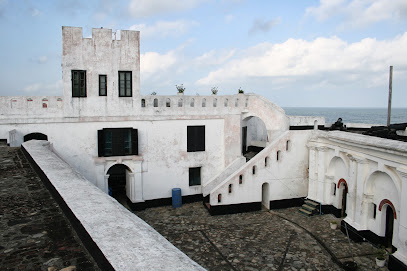
Pikworo Slave Camp
Explore the Pikworo Slave Camp in Paga, Ghana, a memorial park dedicated to the history and legacy of the transatlantic slave trade.
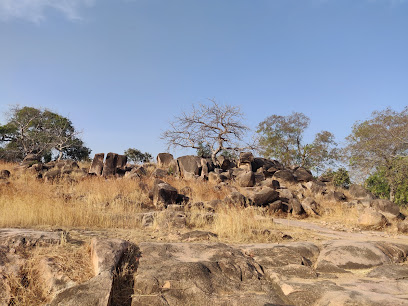
Larabanga Mystic stone
Explore the mystique of Larabanga Mystic Stone, a sacred site blending rich history and natural beauty in the heart of northern Ghana.
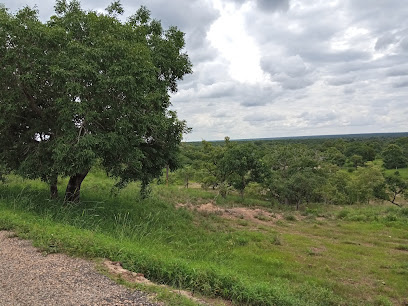
Ankasa Game Reserve & Nini-Suhien National Park
Explore the rich biodiversity and serene landscapes at Ankasa Game Reserve & Nini-Suhien National Park, a hidden gem in Ghana's Western Region.
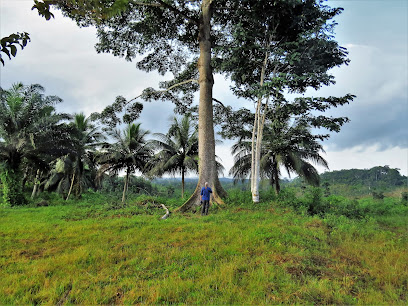
Digya National Park
Explore the enchanting landscapes and rich biodiversity of Digya National Park, a serene escape into Ghana's wild heart.
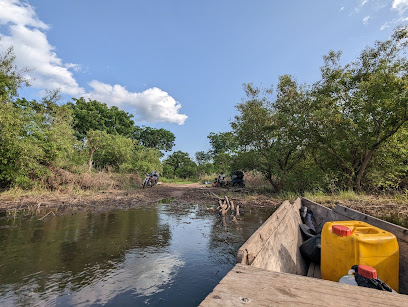
Bia Game Production Reserve
Explore the breathtaking biodiversity and scenic landscapes at Bia Game Production Reserve, a true natural haven in Ghana.
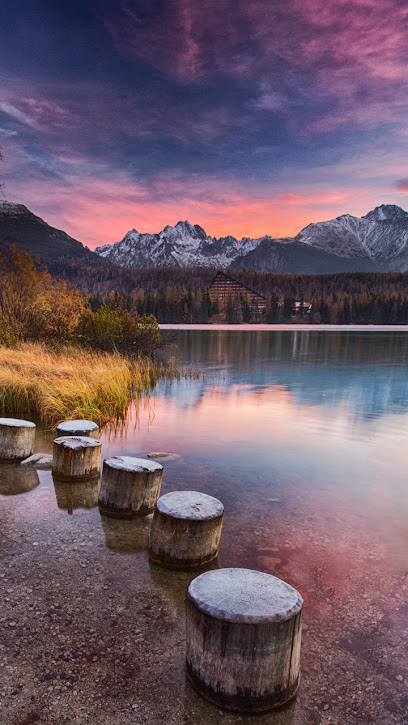
Mognori eco village(Latif's eco tours)
Explore Mognori Eco Village in Ghana - a blend of nature, culture, and sustainable tourism for the eco-conscious traveler.
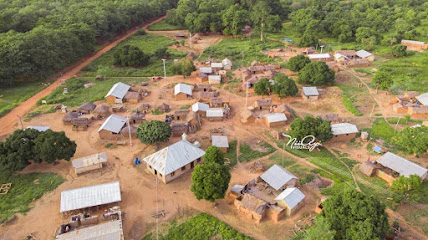
Unmissable attractions to see
Kintampo Waterfalls & Fuller Waterfalls
Discover the stunning Kintampo and Fuller Waterfalls in Ghana, where nature's beauty meets adventure in a serene environment.
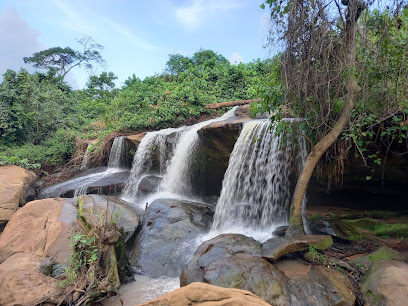
Bui National Park
Explore the breathtaking landscapes and diverse wildlife of Bui National Park in Ghana, a perfect haven for adventure and nature lovers.
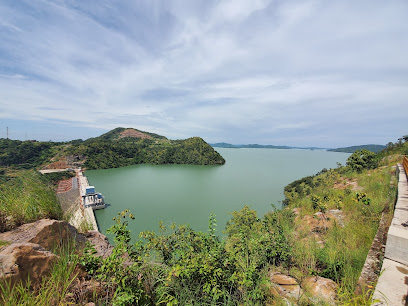
Wechiau Hippo Santuary
Explore Wechiau Hippo Sanctuary, a wildlife haven in Ghana where you can witness hippos in their natural habitat amidst stunning landscapes.
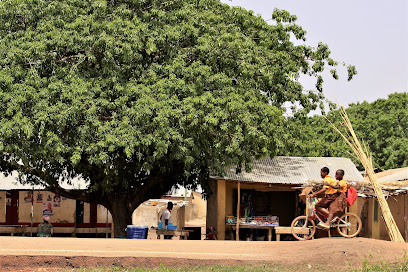
Larabanga Mystic stone
Experience the mystical allure of the Larabanga Mystic Stone, a captivating cultural landmark in Ghana, rich with local legends and history.
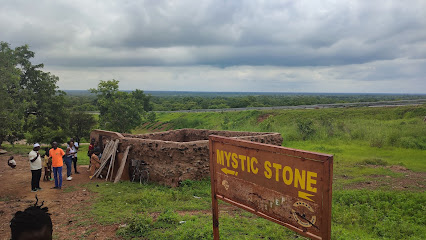
Bole Park
Discover tranquility at Bole Park, a beautiful green space in Bole, perfect for relaxation, family outings, and immersing in local culture.

Damongo Town Park
Explore the natural beauty and tranquility of Damongo Town Park, a perfect retreat for relaxation and family fun in Ghana.
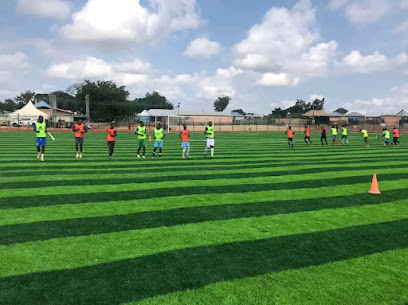
Issa
Experience the serene beauty and rich culture of Issa, a hidden gem in Ghana perfect for tourists seeking an authentic adventure.
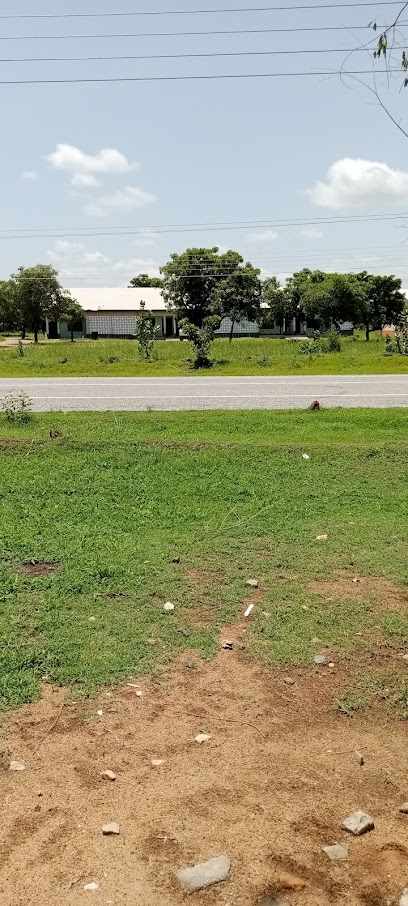
Savla dam
Explore the tranquil beauty of Savla Dam, where nature meets serenity in a picturesque setting near Usarangaon Devi Mandir.
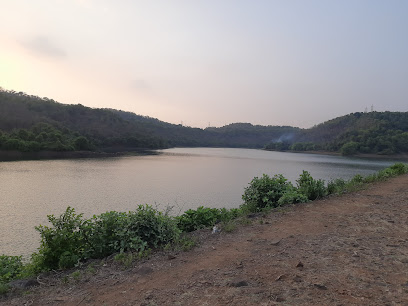
White Volta in Daboya
Explore the scenic beauty and vibrant culture of the White Volta in Daboya, a hidden gem in Ghana's natural landscape.
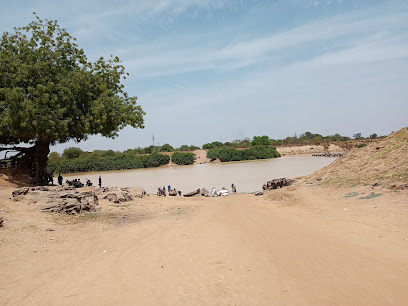
Bosphorus
Discover the serene beauty of Bosphorus Garden in Laboni, a perfect retreat for nature lovers and those seeking tranquility in a vibrant environment.

KPRIA Waterfall
Experience the enchanting beauty of KPRIA Waterfall in Bele, a serene escape surrounded by lush landscapes and natural wonder.
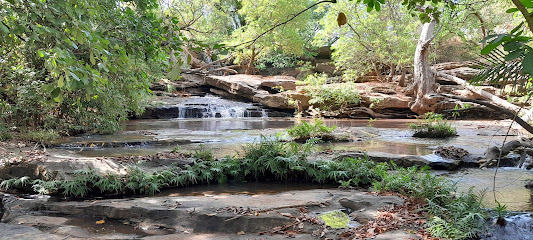
Siiru Dam/Reservoir
Experience the tranquility and natural beauty of Siiru Dam/Reservoir in Vieri, Ghana, a perfect getaway for nature lovers and adventure seekers.

Laadayiri Dam/Reservoir
Experience tranquility at Laadayiri Dam, a hidden gem in Ole, Ghana, surrounded by lush landscapes and serene waters perfect for relaxation.

Bn Mounir park
Experience the tranquility and natural beauty of Bn Mounir Park in Gbasinkpa, a perfect retreat for relaxation and leisurely outdoor activities.

Ambalara Forest Reserve
Explore Ambalara Forest Reserve, a national treasure in Ghana, showcasing lush greenery, diverse wildlife, and serene hiking trails perfect for nature lovers.
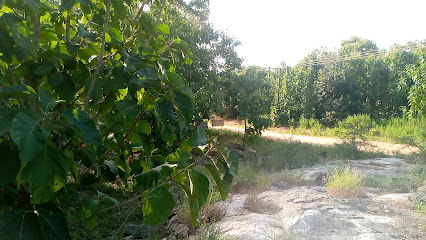
Essential places to dine
Azmera Restaurant
Experience the vibrant flavors of West Africa at Azmera Restaurant – where authentic Ghanaian cuisine meets warm hospitality.
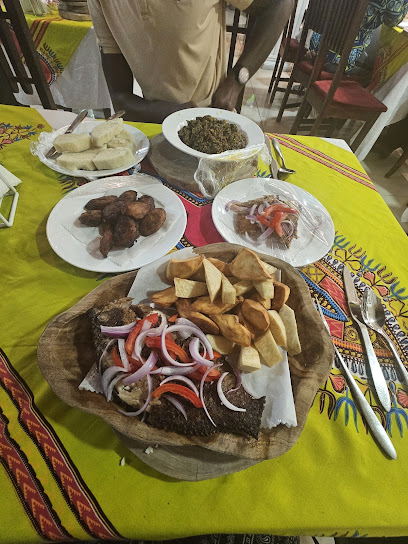
Noble House - Osu
Experience authentic Chinese cuisine at Noble House - Osu, where flavor meets tradition in the heart of Accra.
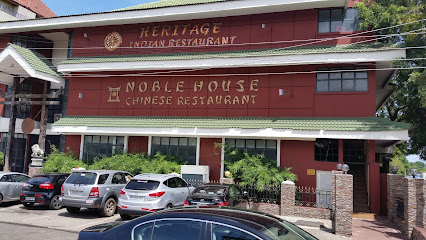
Jamrock Restaurant & Grill
Discover Jamrock Restaurant & Grill: A vibrant fusion of Caribbean and Ghanaian cuisine in Accra's East Airport.
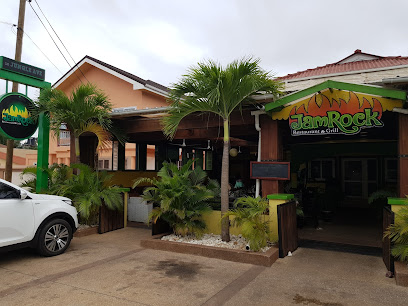
Chez Afrique
Discover authentic African flavors at Chez Afrique in Accra – where every meal tells a story!
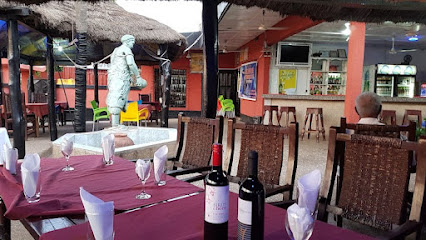
Mama Cuisine
Experience authentic Ghanaian flavors at Mama Cuisine in Accra – where tradition meets taste in every dish.
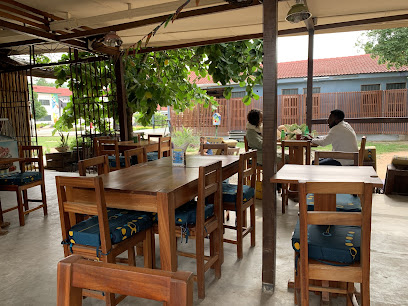
La Chaumiere
Experience authentic French cuisine at La Chaumiere in Accra - where every meal feels like a journey to France.
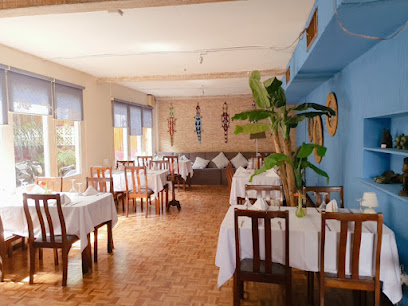
Sunshine Salad Bar and Restaurant
Discover healthy delights at Sunshine Salad Bar & Restaurant in Accra - where fresh ingredients meet vibrant flavors.
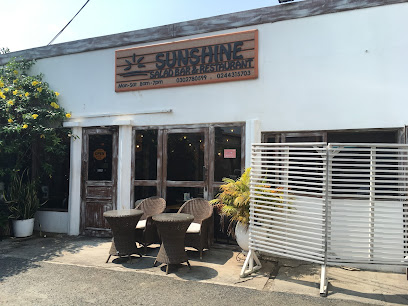
The Neem Grill
Experience authentic Ghanaian cuisine blended with international flavors at The Neem Grill in Accra - A culinary journey awaits!
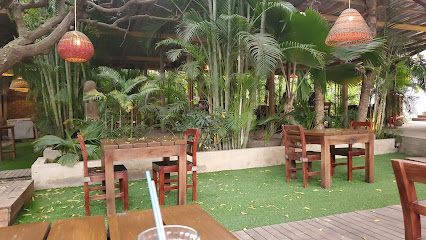
Tandoor Indian Restaurant
Experience the rich flavors of India at Tandoor Indian Restaurant in Accra - where culinary traditions meet modern dining.
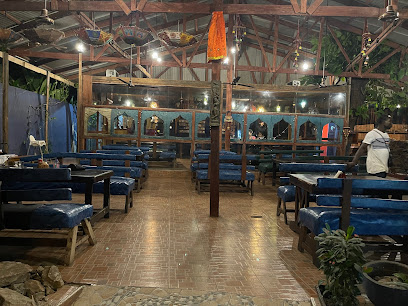
Sankofa Restaurant
Discover the essence of Ghanaian cuisine at Sankofa Restaurant, where traditional flavors meet modern elegance in Accra's vibrant culinary scene.
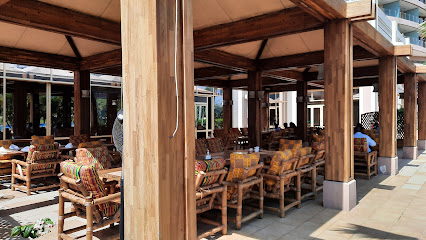
Zaina Lodge
Discover luxury in nature at Zaina Lodge in Mole National Park - a perfect blend of comfort and adventure amidst breathtaking wildlife.
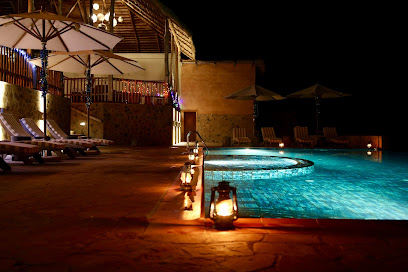
The Venue
Experience the best of Ghanaian cuisine at The Venue in Accra – where local flavors meet international flair.
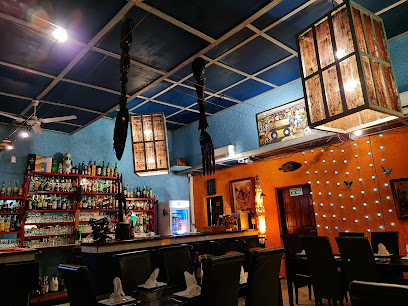
Simret Ethiopian Restaurant
Experience authentic Ethiopian cuisine at Simret Restaurant in Accra – where every meal tells a story.
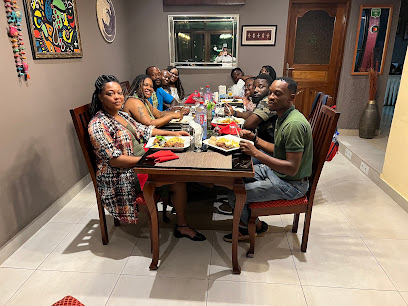
Red Red Restaurant
Experience authentic Ghanaian cuisine at Red Red Restaurant in Accra – where flavor meets culture in every bite.
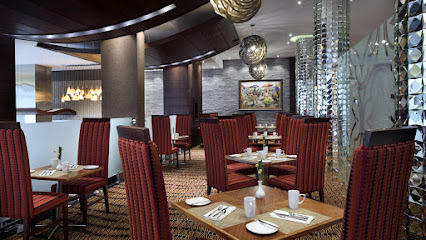
Seoul Grill Restaurant
Experience authentic Korean flavors at Seoul Grill Restaurant in Accra's Kotoka International Airport—perfect for travelers craving delicious cuisine.
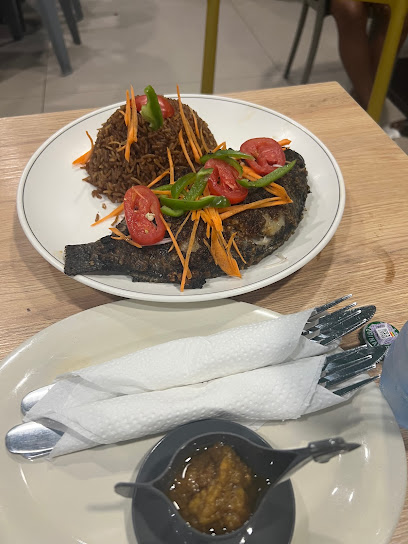
Markets, malls and hidden boutiques
Mole National Park
Experience the wild beauty of Ghana at Mole National Park - a wildlife haven with elephants, diverse bird species, and breathtaking landscapes.
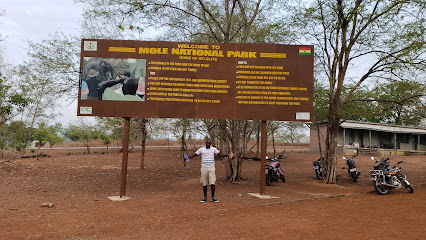
Zalia Memorial Store
Experience local culture at Zalia Memorial Store in Damongo, a supermarket filled with unique local products and vibrant community spirit.
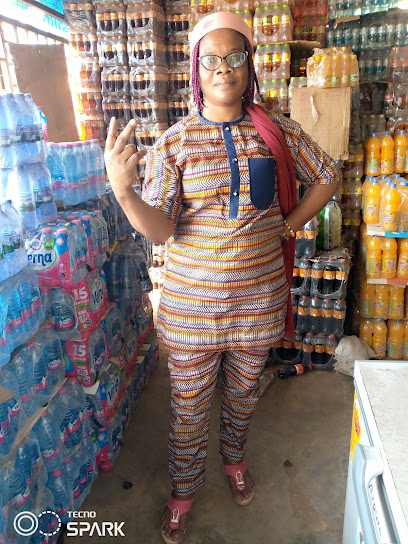
Fashion House-wa
Discover the stylish offerings of Fashion House-wa, where modern fashion meets Ghanaian culture in the heart of Wa.
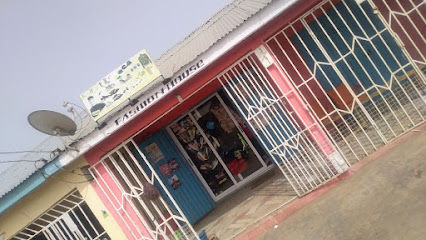
Mama Alice
Explore unique fashion at Mama Alice, a clothing store in Sawla offering local designs and vibrant styles that reflect the area's rich culture.
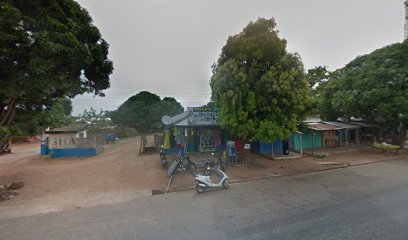
NRGP WAREHOUSE
Discover unique home decor and local crafts at NRGP Warehouse in Sawla, where every item tells a story of Ghanaian culture and craftsmanship.
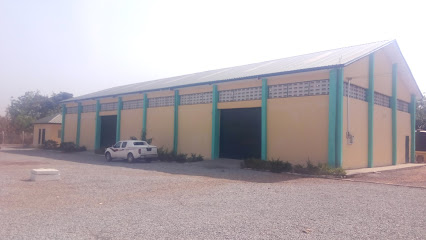
Heena’s Trends Annex
Discover unique fashion pieces at Heena’s Trends Annex, a boutique in Wa, Ghana, offering a delightful blend of traditional and contemporary styles.

Gindabo Market
Explore Gindabo Market in Kulmasa for a vibrant grocery shopping experience infused with local culture and delicious Ghanaian flavors.
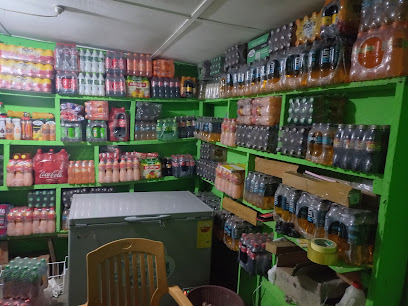
Sweety Cold Store
Discover local flavors and essentials at Sweety Cold Store in Sawla, Ghana – your gateway to authentic shopping experiences.

Mariama Mineral Shop
Explore the vibrant Mariama Mineral Shop in Sawla, a shopping destination offering local crafts, unique souvenirs, and a taste of Ghanaian culture.
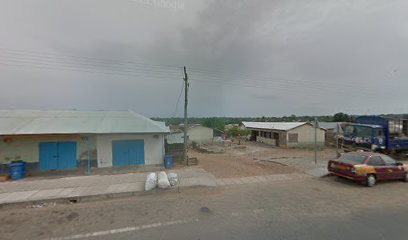
Divine Providence Cosmetics
Explore Divine Providence Cosmetics in Damongo for an exceptional shopping experience in beauty and personal care products.
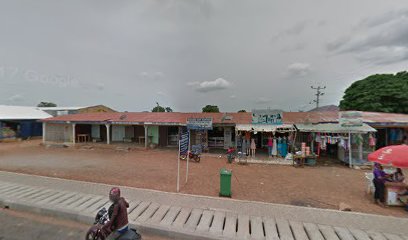
Namong Kulkpong- Tahiru Store
Discover the authentic local culture at Namong Kulkpong - Tahiru Store in Jayiri, where community meets commerce.

Mariama Manerel
Explore the vibrant local craftsmanship at Mariama Manerel, your go-to home goods store in Sawla, Ghana, for unique and culturally rich souvenirs.
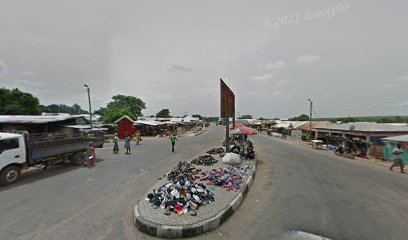
Givers Collection Ventures
Discover unique Ghanaian fashion at Givers Collection Ventures, your go-to clothing store in Bole for authentic and stylish attire.

Madam Connie's Collection
Explore Madam Connie's Collection in Damongo, where local craftsmanship meets contemporary fashion for a unique shopping experience in Ghana.
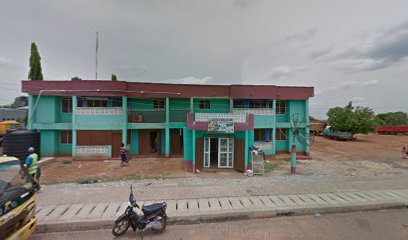
Hadjia momo smocks
Explore Hadjia Momo Smocks in Damongo for authentic Ghanaian textiles and vibrant traditional fashion that tells a story.

Essential bars & hidden hideouts
The Guys PUB
Discover the vibrant nightlife at The Guys PUB in Kpaguri, Wa – a perfect blend of local charm and lively atmosphere.
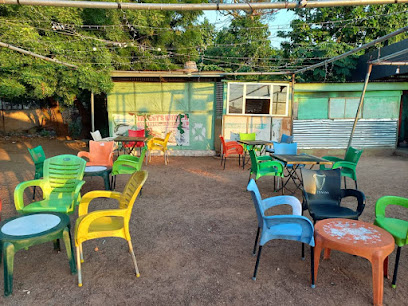
Soldier's Bar
Experience vibrant local culture and refreshing beverages at Soldier's Bar in Wa, a perfect blend of socializing and relaxation.

Glenn Pub & Grill
Discover the heart of Wa-Bole nightlife at Glenn Pub & Grill, where local culture meets a vibrant atmosphere and an extensive drink selection.
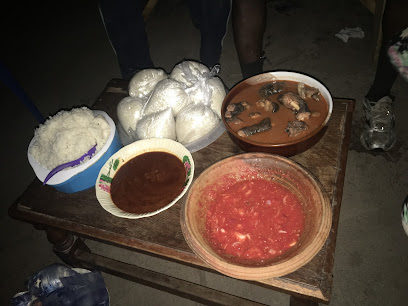
Dayuori Bar
Experience the vibrant nightlife at Dayuori Bar in Tuna, where delicious grilled meats and refreshing drinks await in a cozy atmosphere.
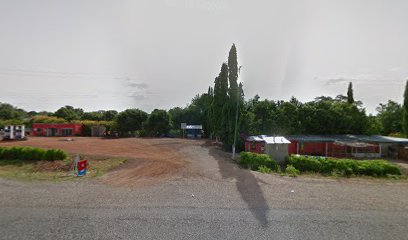
Peace and love
Experience the vibrant atmosphere of Peace and Love Bar in Bole, where relaxation meets local culture and great company.

DREAMER'S SPOT
Discover the lively ambiance of Dreamer's Spot, a vibrant bar in Sawla offering diverse drinks and local culture.
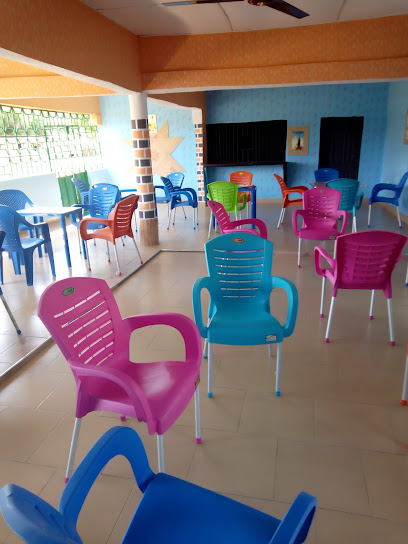
Desperados
Experience the vibrant nightlife of Wa at Desperados, where drinks and good vibes await in a lively bar atmosphere.
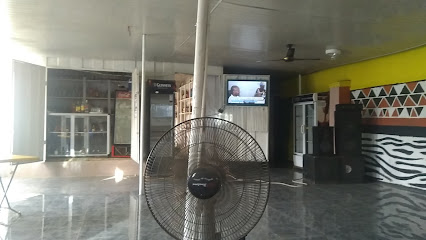
Yaayi’s Pub & Grill
Discover the heart of Ghanaian cuisine at Yaayi's Pub & Grill, where local flavors and warm hospitality create an unforgettable dining experience.

Focus Bar
Immerse yourself in Wa's nightlife at Focus Bar, where local culture meets vibrant entertainment in a welcoming atmosphere.
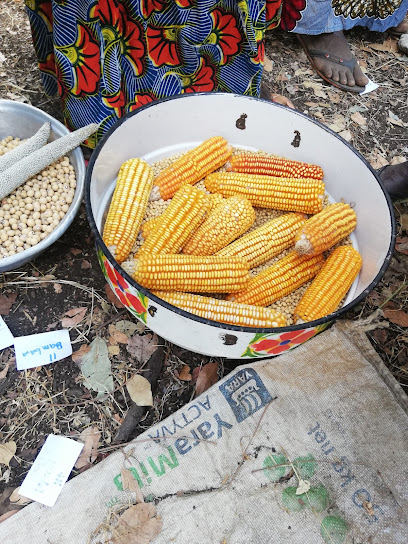
Raphael's Pub
Discover the lively atmosphere and diverse drink selection at Raphael's Pub in Damongo, a perfect spot for relaxation and socializing.
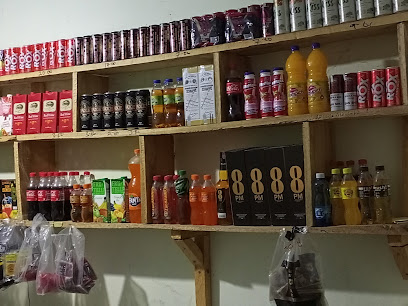
The Safari Lodge
Experience the best of Ghana at The Safari Lodge, where comfort meets adventure in the heart of Larabanga.
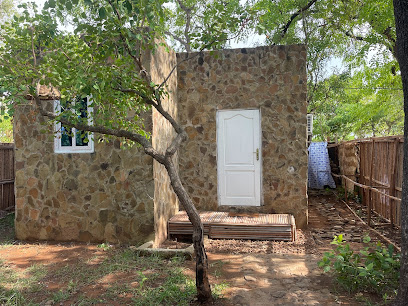
JERUSALEM DRINKING SPOT
Experience the vibrant nightlife at Jerusalem Drinking Spot, a local bar in Sawla offering a delightful mix of drinks and warm hospitality.
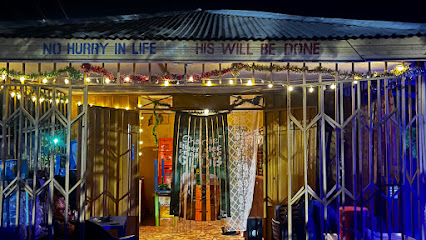
Western pub
Discover the perfect blend of local and Western flavors at this charming pub in Wa, offering a welcoming atmosphere and delicious grilled delights.
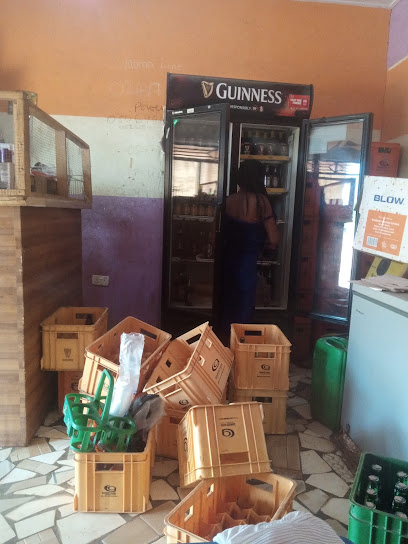
De Icy Pub
Experience the lively nightlife at De Icy Pub in Wa, Ghana, where local flavors and vibrant atmosphere come together for an unforgettable evening.
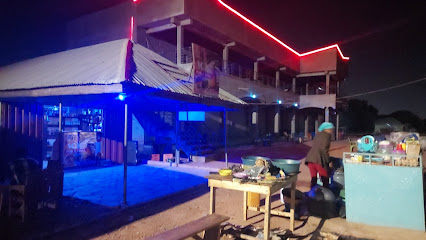
Shake Hands Pub
Discover the lively charm of Shake Hands Pub in Wa, where locals and tourists mingle over refreshing drinks and vibrant entertainment.
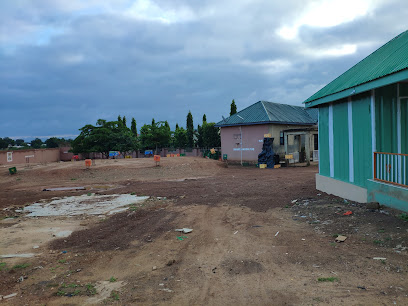
Local Phrases about Mole National Park
-
- Helloŋmɛ
[ŋmɛ] - Goodbyebaa kɛn
[baa kɛn] - Yesɛɛ
[ɛɛ] - Nodaa
[daa] - Please/You're welcomem'afe
[m'afe] - Thank youmedaase
[medaase] - Excuse me/SorryƐyi me
[Ɛyi me] - How are you?Wo ho te sen?
[Wo ho te sen?] - Fine. And you?Fɔ. Ne wo?
[Fɔ. Ne wo?] - Do you speak English?Wo ka Akan?
[Wo ka Akan?] - I don't understandMenya
[Menya]
- Helloŋmɛ
-
- I'd like to see the menu, pleaseMepɛ menu, mesrɛ wo
[Mepɛ menu, mesrɛ wo] - I don't eat meatMenkɔ nyama
[Menkɔ nyama] - Cheers!Afehyia pa
[Afehyia pa] - I would like to pay, pleaseMepɛ sika, mesrɛ wo
[Mepɛ sika, mesrɛ wo]
- I'd like to see the menu, pleaseMepɛ menu, mesrɛ wo
-
- Help!Boa me
[Boa me] - Go away!Yi wo kra
[Yi wo kra] - Call the Police!Tumi tɔ Polis
[Tumi tɔ Polis] - Call a doctor!Tumi tɔ dɔkita
[Tumi tɔ dɔkita] - I'm lostMenyɛ
[Menyɛ] - I'm illMinya
[Minya]
- Help!Boa me
-
- I'd like to buy...Mepɛ sra...
[Mepɛ sra...] - I'm just lookingMinim
[Minim] - How much is it?Afei bɛn?
[Afei bɛn?] - That's too expensiveƐyɛ saa kɔkɔɔ
[Ɛyɛ saa kɔkɔɔ] - Can you lower the price?Ɛyɛ saa kɔkɔɔ
[Ɛyɛ saa kɔkɔɔ]
- I'd like to buy...Mepɛ sra...
-
- What time is it?Dɛn nsoa mu?
[Dɛn nsoa mu?] - It's one o'clockNsoa mu no, ebia
[Nsoa mu no, ebia] - Half past (10)Ɛda so (teɛ)
[Ɛda so (teɛ)] - MorningAnɔpa
[Anɔpa] - AfternoonAwia
[Awia] - EveningAnɔpa
[Anɔpa] - YesterdayNnan
[Nnan] - TodayƐnnidi
[Ɛnnidi] - TomorrowƐfi
[Ɛfi] - 1Kɔtɔ
[Kɔtɔ] - 2Arua
[Arua] - 3Afi
[Afi] - 4Anan
[Anan] - 5Anum
[Anum] - 6Afie
[Afie] - 7Ason
[Ason] - 8Awɔtwe
[Awɔtwe] - 9Aninkron
[Aninkron] - 10Atɛn
[Atɛn]
- What time is it?Dɛn nsoa mu?
-
- Where's a/the...?Ɛyɛ hɔ a...
[Ɛyɛ hɔ a...] - What's the address?Ɛyɛ adɛnkyɛ?
[Ɛyɛ adɛnkyɛ?] - Can you show me (on the map)?Ɛyɛ hɔ a...
[Ɛyɛ hɔ a...] - When's the next (bus)?Ɛyɛ bɛn a?
[Ɛyɛ bɛn a?] - A ticket (to ....)Tiket (kɔ ....)
[Tiket (kɔ ....)]
- Where's a/the...?Ɛyɛ hɔ a...
History of Mole National Park
-
Long before Mole National Park was established, the region was home to various indigenous tribes. These communities, such as the Dagombas and the Gonjas, lived harmoniously with nature, utilizing the land for agriculture, hunting, and gathering. Their ancient practices and cultural heritage can still be observed in the traditions of the local people living around the park today.
-
During the British colonial period, the area now known as Mole National Park was identified for its rich biodiversity. In 1958, the Ghanaian government, recognizing the need to protect this unique environment, declared it a game reserve. This move was part of broader conservation efforts to safeguard the region's wildlife from hunting and habitat destruction.
-
In 1971, Mole National Park was officially established, covering an area of 4,577 square kilometers. The park was created to conserve the diverse flora and fauna, including elephants, antelopes, and various bird species. The establishment of the park marked a significant milestone in Ghana’s conservation history, aiming to protect and manage the country's natural resources for future generations.
-
Mole National Park is renowned for its incredible biodiversity. The park is home to over 90 mammal species, including the African elephant, buffalo, and leopard, as well as approximately 300 bird species. Various conservation programs have been implemented to maintain and enhance the park's ecosystems. These efforts include anti-poaching measures, community engagement, and research initiatives to monitor wildlife populations and their habitats.
-
The cultural landscape of Mole National Park is deeply intertwined with the traditions and beliefs of the local communities. Sacred groves, traditional ceremonies, and folklore are integral to the cultural fabric of the area. Visitors to the park can explore local villages and experience the vibrant culture, including traditional dances, music, and crafts, which reflect the rich heritage of the people living in harmony with the natural environment.
-
Over the decades, Mole National Park has developed into a premier ecotourism destination in West Africa. The park offers a range of activities such as safari tours, bird watching, and guided walks, providing visitors with an immersive experience of the natural and cultural treasures of the region. The revenue generated from tourism supports conservation efforts and community development projects, creating a sustainable model that benefits both the environment and the local populace.
-
Mole National Park faces several challenges, including human-wildlife conflict, poaching, and habitat degradation. However, ongoing conservation initiatives and increased awareness are paving the way for a brighter future. Collaborative efforts between the government, non-governmental organizations, and local communities are crucial in addressing these challenges and ensuring the preservation of the park's natural and cultural heritage for future generations.
Mole National Park Essentials
-
Mole National Park is located in the Northern Region of Ghana. The nearest major city is Tamale, which has an airport that receives flights from Accra and other parts of Ghana. From Tamale, you can take a bus, hire a private car, or join a guided tour to reach Mole National Park. The journey by road from Tamale to Mole typically takes around 3 to 4 hours. Alternatively, you can reach the park from Wa, which is another nearby city with road connections to the park.
-
Within Mole National Park, the main mode of transportation is by safari vehicle. Guided tours are available and are highly recommended for exploring the park's extensive wildlife. For those who prefer self-driving, 4x4 vehicles are available for rent, but it is advisable to have experience driving on rugged terrain. Walking safaris are also an option and offer a unique way to experience the park. Public transportation options are limited within the park itself, so plan accordingly.
-
The official currency in Ghana is the Ghanaian Cedi (GHS). Most transactions within Mole National Park and nearby areas are conducted in cash. It is advisable to carry sufficient cash, as ATMs are scarce in the region. Credit cards are accepted in some lodges and hotels, but it's best to confirm in advance. Make sure to have smaller denominations for tips and smaller purchases.
-
Mole National Park is generally safe for tourists. However, it is essential to take standard precautions. Avoid walking alone at night and always stay within designated areas, especially during wildlife tours. While the park itself is safe, some surrounding rural areas may have higher crime rates. It is advisable to travel in groups and avoid displaying valuables. Always follow the instructions of your guides and park rangers.
-
In case of an emergency, contact the nearest ranger station or lodge staff immediately. The park has basic medical facilities, but for serious medical issues, you may need to be transported to the nearest hospital in Tamale. It is strongly recommended to have travel insurance that covers medical emergencies and evacuation. Emergency contact numbers include the local police (191) and medical emergency services (193).
-
Fashion: Do wear light, breathable clothing and sturdy footwear suitable for walking. Avoid wearing bright colors that may startle wildlife. Religion: Do respect local customs and traditions. Dress modestly, especially when visiting nearby villages. Public Transport: Do be respectful to drivers and fellow passengers. Don't rely on public transport for travel within the park. Greetings: Do greet people with a handshake and use polite forms of address. Eating & Drinking: Do try local dishes and accept food offerings graciously. Don't waste food, as it is considered disrespectful.
-
To experience Mole National Park like a local, consider visiting during the dry season (December to April) when wildlife is easier to spot around waterholes. Engage with local guides and rangers, who can share invaluable insights about the park's flora and fauna. Don't miss out on visiting the nearby Larabanga Mosque, one of the oldest mosques in West Africa. Participate in community-based tourism activities to support local communities and gain a deeper understanding of their way of life.
Trending Landmarks in Mole National Park
-
Kwame Nkrumah Memorial Park & Mausoleum
-
Kakum National Park
-
Fort James
-
Mole Motel
-
Osu Castle
-
Bui National Park | TortoisePath.com
-
Zaina Lodge
-
Boabeng Fiema Monkey Sanctuary
-
Fort Metal Cross | TortoisePath.com
-
Pikworo Slave Camp
-
Larabanga Mystic stone
-
Ankasa Game Reserve & Nini-Suhien National Park
-
Digya National Park
-
Bia Game Production Reserve
-
Mognori eco village(Latif's eco tours)
Nearby Cities to Mole National Park
-
Things To Do in Tamale
-
Things To Do in Sunyani
-
Things To Do in Koudougou
-
Things To Do in Bobo-Dioulasso
-
Things To Do in Kumasi
-
Things To Do in Ouagadougou
-
Things To Do in Ziniaré
-
Things To Do in Dédougou
-
Things To Do in Atakpamé
-
Things To Do in Kpalimé
-
Things To Do in Ho
-
Things To Do in Koforidua
-
Things To Do in Notse
-
Things To Do in Ouahigouya
-
Things To Do in Yamoussoukro









